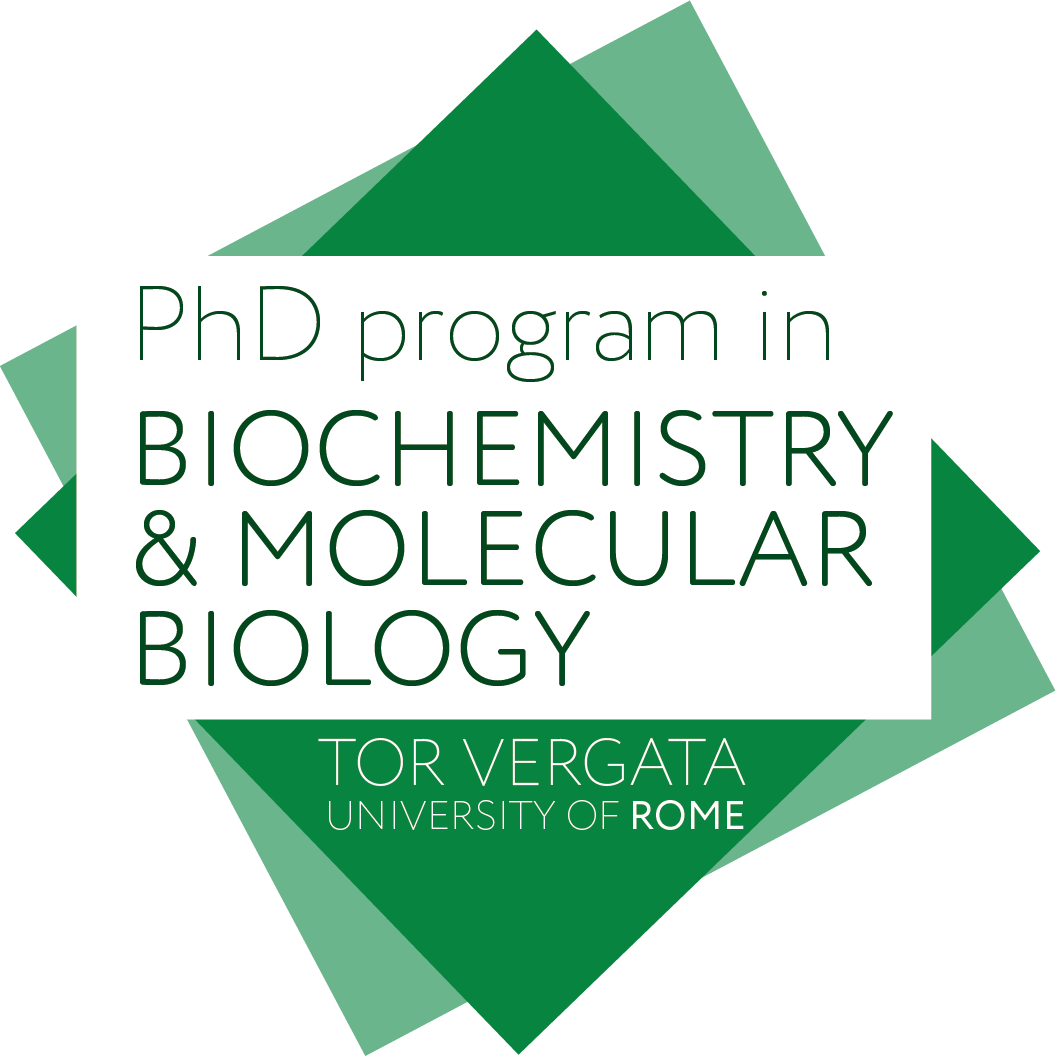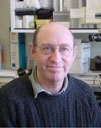
Aberdam Daniel
Hôpital Saint-Louis, Inserm U976, France aberdam@unice.fr
Daniel Aberdam completed his first degrees at Pierre and Marie Curie University (Paris, France) and his PhD at the Weizmann Institute (Israël) on the oncogenic potential of homeotic genes, under the supervision of Professor Leo Sachs. He currently holds the position of INSERM Director of Research and Long Term Visiting Professor of the Israeli Institute of Technology (Technion). He is Director of the INSERM Unit U898 (Nice, France) and Director of INSERTECH (Technion). His scientific interests focus on epithelial gene regulation and skin physiopathology. Lately, his group developed strategies to recapitulate in vitro embryonic skin development derived from embryonic stem cell lines.

Amelio Ivano
Università di Costanza, Germania
ivano.amelio@uni-konstanz.de
Ivano Amelio holds the Carl Zeiss Endowed Chair for Systems Toxicology at the University of Konstanz, Germany. He received his training at the MRC Toxicology Unit in UK, where he was first awarded (in 2011) a Career Developmental Postdoctoral Fellowship and was later promoted (in 2015) to a Senior Scientist position. Originally, he received his PhD in Biochemistry and Molecular Biology (2011) from the University of Rome Tor Vergata (Italy). In 2020 Ivano was awarded the prestigious AIRC Start-Up program, which led him to a tenure-track professorship with a joint appointment between the TOR Centre of Excellence in Rome (Italy) and University of Nottingham (UK) until 2022, when he joined the University of Konstanz.
Ivano is a member of the board of directors of the European Cell Death Organisation (ECDO) and member of a number of international advisory boards. He has served as Editor-in-Chief of Cell Death Discovery since 2018 and as member of the editorial board of Cell Death & Disease and Molecular & Cellular Oncology since 2017 and 2014 respectively.

Antonov Alexej
MEDICAL RESEARCH COUNCIL TOXICOLOGY UNIT, UNIVERSITY OF LEICESTER, UK
aa2060@mrc-tox.cam.ac.uk
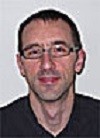
Bano Daniele
German Center for Neurodegenerative Diseases (DZNE), BONN, GERMANIA
daniele.bano@dzne.de
Dr Daniele Bano obtained his PhD at University of Padua, Italy. He joined the MRC Toxicology Unit, University of Leicester, as Postdoctoral Fellow from 2003 to 2007, and then he moved to the Institute of Molecular Biology, University of Zurich, from 2007 to 2008. Since 2008 he has been Program Leader at the MRC Toxicology Unit, University of Leicester. Recently, he has also been appointed as Group Leader at the DZNE, Bonn, Germany. His scientific interest focuses upon the role of calcium in neuronal degeneration and in the molecular events that modulate aging.
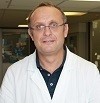
Blandino Giovanni
Translational Oncogenomic Unit, Istituto Regina Elena, Roma – giovanni.blandino@ifo.it
Dr. Blandino graduated with Master Degree from University of Catania, Italy in 1990. He received High School degree in Oncology from the University of Milan, 1994. He performed his postdoctoral research activities at the Weizmann Institute of Science, Israel from 1995-1999. He is now Head of the Oncogenomic and Epigenetic Unit and the Institutional Coordinator of Translational Research at Regina Elena Cancer Institute in Rome. He part-time Associate Professor at the Department of Oncology, at the McMaster University, in Hamilton, Canada. He has published more than 200 papers in peer-reviewed journals. In aggregate, over the past twenty years much of his experimental, translational and clinical work has focused on the molecular understanding of the oncogenic role of mutant p53 proteins. At the present time, TP53 is the most studied tumor suppressor gene and it is the most frequent target for genetic alterations in human cancers. Because the frequency of TP53 mutations ranges from 50 to 70% of human cancers, TP53 protein has become the focus of very intense experimental and clinical cancer research. His research group has originally found that gain of function mutant TP53 proteins exert their oncogenic activities physically interacting with bona-fide transcription factors such as NF-Y, E2Fs, and thereby promotes aberrant transcription of genes involved in cell proliferation, invasion, migration and genomic instability. His group originally reported that gain of function mutant TP53 proteins modulate aberrantly the expression of Non-Coding Factors such microRNAs, circularRNAs. In addition to the TP53, his major current research focus is translational implications of small non- coding RNAs (microRNAs and circular RNAs) that are emerging as epigenetic powerful biomarkers for fine molecular stratification of human cancer, for its prevention, early detection and prediction of response to cancer treatment.

Knight Richard Austin
MRC Cambridge, United Kingdom austinknight1943@gmail.com

KRISHNA Rajalingam
University Medical Center of the Johannes Gutenberg, Cell Biology Unit, Germany
krishna@uni-mainz.de
Krishna Rajalingam heads a cell death signalling group at the Institute for Biochemistry II in Goethe University, Frankfurt, Germany. He received his Ph.D. (2004) in Molecular cell biology from Humboldt University /Max Planck Institute for Infections Biology in Berlin. Krishna’s lab is interested in understanding the molecular signalling machinery modulating tumour cell survival and migration. In particular, his lab focusses on elucidating the physiological role of IAPs, biology of RAF kinases and cell death mediated by bacterial toxins. Krishna was an Emmy Noether fellow of the DFG (2007-2012) and subsequently been selected to be a fellow of the Boehringer Ingelheim foundation (2012).

KROEMER Guido
INSERM, U1138, Université de Paris, Paris, France.
kroemer@orange.fr
France, Villejuif – Guido Kroemer currently serves as a Research Director at INSERM, in the INSERM Unit 848, located in Villejuif, France. Prior to joining the INSERM (1993), he was Senior Scientist of the European Community at the Spanish National Research Council (CSIC) at the National Center of Molecular Biology (1990-1992) and at the National Center of Biotechnology (1993). He did his postdoctoral training in the Collège de France, Nogent-sur-Marne, France (1988-1989) and at the University of Innsbruck, Austria, after receiving his PhD and MD degrees at the same University in 1985. He also holds a PhD degree in biology (Autonomous University of Madrid, Spain). G. Kroemer is member of EMBO, German Academy of Sciences (Leopoldina), Academia Europaea and European Academy of Sciences and Arts. He received the 2006 Descartes Prize, the highest scientific distinction of the European Union, for his fundamental discoveries in the field of programmed cell death (apoptosis). He also received one of the Grands Prix from the French Academy of Sciences in 2007, as well as the Carus Medal from the German Academy of Sciences. His interests embrace the role of mitochondria in pathological cell death, the contribution of autophagy to disease processes, and the immune response to dying cancer cells.
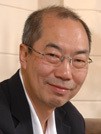
Mak Tak Wah
Departments of Medical Biophysics and Immunology, University of Toronto, Canada tmak@uhnres.utoronto.ca
Tak W. Mak is the Director of the Campbell Family Institute for Breast Cancer Research at the Princess Margaret Cancer Centre, and a University Professor in the Departments of Medical Biophysics and Immunology at the University of Toronto. Dr. Mak received his B.Sc. and M.Sc. degrees from the University of Wisconsin (Madison) and his Ph.D. degree from the University of Alberta. His postdoctoral work was performed at the Ontario Cancer Institute under the supervision of Dr. Ernest McCulloch. Dr. Mak’s research interests center on immune cell recognition/regulation, molecular mechanisms underlying the survival and death of normal or malignant cells, as well as the role of inflammation in the progression of autoimmune disease and cancer. He is best known as the lead scientist of the group that first cloned the genes of the human T cell antigen receptor, a discovery that provided essential insights into the molecular basis of cellular immunity. In addition, Dr. Mak has devoted a large portion of his research to investigating the pathogenesis of cancer. In particular, he is interested in mechanisms of metabolic transformation in order to identify potential targets for novel cancer therapeutics. Dr. Mak has published over 800 peer-reviewed research papers and holds many patents. His many accomplishments have been recognized by the scientific community through numerous prestigious awards and honours, such as the, Emil von Behring Prize, Gairdner International Award, King Faisal International Prize for Medicine, Sloan Prize, and Novartis Immunology Prize. He is a Fellow of the Royal Society of London, a Foreign Associate of the National Academy of Sciences (USA), an Officer of the Orders of Ontario and Canada and a Fellow of American Association for Cancer Research Academy (USA).

MALEWICZ Michal
Łukasiewicz Research Network – PORT Polish Center for Technology Development michal.malewicz@port.lukasiewicz.gov.pl
Dr Michal Malewicz received a Masters degree in Molecular Genetics in 1997 from the University of Warsaw (Poland). He did his doctoral work at the Karlsruhe Institute of Technology (Germany) on activation induced cell death of T-cells, which was accomplished in 2002. Thereafter Michal moved to Ludwig Institute for Cancer Research affiliated with the Nobel Karolinska Institute in Stockholm. While in Sweden Michal performed important studies on the regulation of transcription and DNA repair in neuronal cells. From 2012 Michal has been appointed as Principal Investigator at The MRC Toxicology Unit in Leicester (UK). Michal’s lab has interests in mammalian DNA repair and DNA damage response regulation.
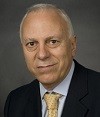
NICOTERA Pierluigi
German Center for Neurodegenerative Diseases (DZNE), BONN, GERMANIA
pierluigi.nicotera@dzne.de
Pierluigi Nicotera received his MD from the University of Pavia, Italy, in 1982 and his PhD from the Karolinska Institutet in 1986. In 1995 he was appointed Professor of Toxicology at the University of Konstanz, Germany. Between 2000-2009 he was Director of the Medical Research Council Toxicology Unit, Leicester, UK. His early research was concerned with the mechanisms of Ca2+-mediated cytotoxicity but now focuses on the mechanisms of cell death in toxic injury and neuronal disease. Currently, Nicotera is Director of a new German Center for Neurodegenerative Diseases (DZNE) in Bonn, Germany.

Peschiaroli Angelo
Consiglio Nazionale delle ricerche-Istituto Farmacologia Traslazionale
peschiaroli@med.uniroma2.it
+39 06 72596927

Raschellà Giuseppe
Ente Per Le Nuove Tecnologie, l’Energia e l’Ambiente
giuseppe.raschella@enea.it
Giuseppe Raschellà graduated in Pharmaceutical Chemistry in 1976 and in Biological Sciences in 1980 at the University of Rome, Sapienza. He did his post-doctoral training (1984-1985) at the University of North Carolina at Chapel Hill in Dr Clyde Hutchison’s laboratory where he studied the organization of globin genes and Long Interspersed Elements 1 (LINE-1). In 1986 he started his research group at the ENEA Research Center Casaccia in Rome working on the biology of solid tumours of neuroectodermal origin, particularly neuroblastoma. During his research career he has been interested in the role of oncogenes in regulating proliferation, differentiation and survival of tumour cells. His current research interests include the molecular mechanisms of Epithelial Mesenchymal Transition (EMT) in tumours and the role of microRNAs in metastasis. He served as a member of the Scientific Board of the Italian Association for Neuroblastoma Research (2002-2004). He has been reviewer of several scientific journals among which, Journal of Cellular Biochemistry, International Journal of Cancer, Cellular & Molecular Life Sciences and Cell Death & Differentiation.
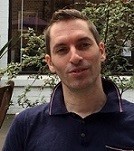
Rufini Alessandro
Leicester Cancer Research Centre, UNIVERSITY OF LEICESTER, UK
ar230@le.ac.uk
Alessandro Rufini got his degree at the University of Rome “La Sapienza”, before being employed at the Department of Toxicology and Etoxicology at the “Instituto Superiore de Sanita” (ISS), Rome. From 2002 he worked as a PhD student at the University of Rome Tor Vergata. During this time his research focused on the p53-family of transcription factors and their involvement in development. He then joined Prof. Tak W. Mak’s laboratory at Campbell Family Institute for Breast Cancer Research, at the Princess Margaret Hospital in Toronto in 2006 as post-doc and continued working on the p53-family. He was appointed to his current position as lecturer in the Department of Cancer Studies at the University of Leicester in 2013. Currently, he leads a research group focused on early detection of disease and exploitation of metabolic pathways for prevention and therapy of colon cancer. He has authored numerous peer reviewed articles and is on the editorial board of Frontiers in Cancer Molecular Targets and Therapeutics, while acting as reviewer for several peer reviewed journals.
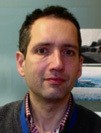
SALOMONI Paolo
German Center for Neurodegenerative Diseases (DZNE), BONN, GERMANIA
paolo.salomoni@dzne.de
Paolo Salomoni is at Samantha Dickson Brain Cancer Unit, UCL Cancer Institute, London, UK. Paolo Salomoni was appointed Brian Cross Professorial Research Associate at the UCL-Cancer Institute, Department of Cancer Biology in October 2009. He leads the Samantha Dickson Brain Cancer Unit, the first UK research centre fully dedicated to brain cancer research, funded by The Brain Tumour Charity (formerly known as Samantha Dickson Brain Tumour Trust). He is also part of the UCL Centre for Stem Cells and Regenerative Medicine and of UCL Neuroscience. Paolo started his PhD training at the Kimmel Cancer Center, Philadelphia, under the supervision of Bruno Calabretta. In 1999, he moved to the Memorial Sloan-Kettering Cancer Center, New York, in the laboratory led by Pier Paolo Pandolfi. After finishing his postdoctoral training at MSKCC in 2003, he moved to the Medical Research Council Unit in Leicester, where he was programme leader track and then programme leader.
His main focus is on molecular mechanisms underlying cell fate control in normal and neoplastic stem cells, and how alterations of these mechanisms contribute to cancer. In particular, we have investigated two main processes involved in tumourigenesis:
- alteration of chromatin function and the interchromatin space;
- metabolic deregulation. His work has several translational ramifications, as studies conducted in his laboratory have led to a number of Phase II clinical trials for the use of an metabolic drugs in cancer therapy.

SELIKTAR Dror
Institute of Technology of Haifa, Israel
bmdror@technion.ac.il

SHALOM-FEUERSTEIN Ruby
Russell Berrie Nanotechnology Institute Technion-Israel Institute of Technology
shalomfe@tx.technion.ac.il

SHI Yufang
Soochow University, Cina
shiyufang2@gmail.com
Yufang Shi is Director and Professor of the Institute of Health Sciences, Shanghai Institutes for Biological Sciences of Chinese Academy of Sciences, and Shanghai Jiao Tong University School of Medicine. He also holds a University Professor title at Robert Wood Johnson Medical School, University of Medicine and Dentistry of New Jersey. He received his Ph.D. in Immunology from University of Alberta in 1992. From 1995 to 2001, he was a faculty member at the American Red Cross Laboratory, Holland and George Washington University. His research team studies i) molecular mechanisms of activation-induced cell death in T cell subpopulations; ii) understanding how immunosuppression is mediated in mesenchymal stem cells; iii) tumor stroma and tumor immunology; and iv) psychoneuroimmunology. He is one of the editors of Cell Research and has served on editorial boards of Journal of Immunology, Oncogene, Journal of Biological Chemistry, Cellular and Molecular Immunology, and the American Journal of Translational Research.

Soddu Silvia
ISTITUTO REGINA ELENA
silvia.soddu@ifo.it
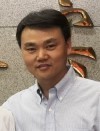
Sun Qiang
Peking University, Cina
sunqiang1975@126.com
Qiang Sun obtained his PhD in Molecular Biology and Biochemistry at the Forth Medical University, Xi’an, under the supervision of Professor Hua Han. Then, he moved to Beijing Institute of Biotechnology where he systemically investigated the mutual regulation between TGF-beta signaling and miRNAs. During that period, he independently discovered and investigated cell-in-cell structures before postdoctoral research with Dr. Michael Overholtzer in MSKCC. His postdoctoral work identified entosis as a mammalian mechanism of cell competition that promotes clonal selection and tumor evolution. He is currently a full professor of cell biology in Beijing Institute of Biotechnology, and director of the Research unit of Cell Death Mechanism, Chinese Academy of Medical Sciences. His lab is dedicated to basic and translational studies related to cell death and diseases, in particular those involving cell-in-cell formation homotypically among tumor cells, and/or heterotypically between tumor and immune cells.
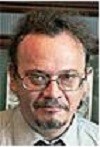
VERKHARTSKY Alexej
University of Manchester, UK
Alexej.Verkhratsky@manchester.ac.uk
Alexej Verkhratsky is Professor of Neurophysiology at the University of Manchester, UK. He is also the Section Head of Physiology & Medicine for Academia Europaea, Editor-in-Chief of Cell Calcium and of Membrane Transport & Signalling – Wiley Interdisciplinary Reviews. He graduated from Kiev Medical Institute in 1983, and received his PhD in Physiology from Bogomoletz Institute of Physiology in 1986. Since 1990 Professor Verkhratsky has investigated the physiology and pathophysiology of glia. These studies demonstrated that Ca2+ signaling in glial cells may be regarded as the basis of their excitability. In 2007 Verkhratsky (together with AM Butt) published the first ever Textbook on Glial Neurobiology. In recent years Verkhratsky has studied the pathological potential of astrocytes and microglia in Alzheimer’s disease. In particular he discovered the atrophy of astrocytes in the early stages of Alzheimer’s disease whereby the diminished astroglial support of neuronal networks may act as a key factor in disruption of synaptic connectivity in neurodegenerative processes. He is also an expert in molecular physiology of calcium signaling in neurons.

Wang Ying
Shanghai Institutes for Biological Sciences, University of Chinese Academy of Sciences, Shanghai, China.
yingwang@sibs.ac.cn

WATSON Christine
University of Cambridge
cjw53@cam.ac.uk

WILLIS Anne
MEDICAL RESEARCH COUNCIL TOXICOLOGY UNIT, UNIVERSITY OF LEICESTER, UK
aew80@mrc-tox.cam.ac.uk
